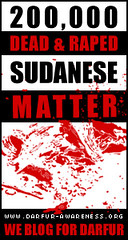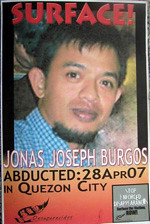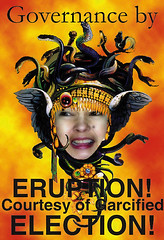An Open Letter to Sen. Benigno “Noynoy” Aquino III, President-Elect, Republic of the Philippines
Dear Sen. Aquino,
First and foremost, we extend our deepest and sincerest congratulations on your ascendancy to the highest-elected office of our beloved country through a democratic process that every Filipino can take pride in for many generations to come. The first step inherent in the process of transformation is recognizing the need for change – and our capacity to change for the better! Thus, from this point onward, we are hopeful that inspired by your convincing victory and leadership, every Filipino will assume his or her role and responsibility to change the status quo by initiating positive changes towards a better and brighter Philippines, no matter where he or she is, and regardless of what citizenship he or she now holds.
We, the Overseas Filipinos Worldwide (OFW), are a group of Filipinos based abroad and in the Philippines, representing various organizations implementing projects in the Philippines and in our host countries for many years now that are aimed to strategically harness the Philippines’ migration gains into mechanisms for the development of the motherland and our communities of origin.
Migration gains are mainly remittances by overseas Filipinos to their family members, which are now in the region of USD17 billion and are the primary source of livelihood for millions of Philippine households. At 10.8% of the country’s GDP, they are also the third biggest source of the country’s foreign currency reserves and act as primary driver for our economy, shielding us from bankruptcy during the financial crisis in 1997 and the current one. The Filipino diaspora, estimated now at about 10 million working or residing in 239 countries and territories worldwide, send back donations to various humanitarian causes, such as disaster–relief, medical missions, schoolhouses, and other infrastructure. These contributions supplement local and national government deficits and, as of 2003, have already amounted to USD218 million, per BSP figures in that year. We do not count here the investments made by OFWs in real estate and the education and health of their family members, and the money spent on various goods and services, as well as on construction, food, shelter, and other inflows that support sectors like the airlines, shopping centers, and banks. Yet, after more than three decades of overseas employment, we do not see genuine signs of poverty alleviation, and instead more and more of our countrymen leave for work abroad.
Ironically, the Philippine model of overseas migration has become a model of sorts, for other migrant-origin countries to emulate and even copy. This however does not tell the whole story or reveal the other face of migration that has escaped the serious attention of past administrations, specifically, the social costs that migration has bred since government-managed deployment started in the early 70s and up to the present, where we now see at least 3,000 of many of the best and brightest Filipinos leaving daily to take up jobs overseas, due to local employment deficits. Other nations like South Korea, Italy, Ireland, Portugal, and Taiwan, who once were labor exporting countries, have been able to get over their migration hump, as a result of their governments’ consciously harnessing their workers’ remittances and investing them to develop local infrastructure, shipyards, factories, and other industries. Convinced of the effectiveness of government programs and also trustful of their leaders’ sincerity, these countries’ expatriates and overseas workers, at great sacrifice, left their high-paying jobs overseas and returned to their home countries to lend their talents and acquired expertise in further helping their respective country’s leap towards developed status even working at low salaries. India, another migrant-sending country, is also now going in that direction. These examples serve to illustrate the dictum that migration should be temporary, that it must not be used as a substitute for development. The desirable goal of countries wishing to be strong and globally competitive must necessarily be self-sufficiency and the ability to provide its people with necessary components needed for their human development.
The advent of a new administration, especially one under your inspired leadership, is a good time to ask where the Philippines is going regarding migration, and to act accordingly. Shall we continue to send out our people and rely on remittances and without any development objectives in sight? Conversely, don’t we have the talent to formulate a road map towards self-sufficiency over a period of time, in order that the hemorrhage of talents could be stopped, that a crisis in our dysfunctional families and society at large could be averted, and so that our people do not have to take migration as a forced option? If long-term migration goals are set now, the government could in the meantime work on some basic but urgent deployment and migration issues in order to clear the way towards having a genuine and serious program on translating migration gains for use in human development. In view of this, we humbly suggest starting to look at the following:
First and foremost, we extend our deepest and sincerest congratulations on your ascendancy to the highest-elected office of our beloved country through a democratic process that every Filipino can take pride in for many generations to come. The first step inherent in the process of transformation is recognizing the need for change – and our capacity to change for the better! Thus, from this point onward, we are hopeful that inspired by your convincing victory and leadership, every Filipino will assume his or her role and responsibility to change the status quo by initiating positive changes towards a better and brighter Philippines, no matter where he or she is, and regardless of what citizenship he or she now holds.
We, the Overseas Filipinos Worldwide (OFW), are a group of Filipinos based abroad and in the Philippines, representing various organizations implementing projects in the Philippines and in our host countries for many years now that are aimed to strategically harness the Philippines’ migration gains into mechanisms for the development of the motherland and our communities of origin.
Migration gains are mainly remittances by overseas Filipinos to their family members, which are now in the region of USD17 billion and are the primary source of livelihood for millions of Philippine households. At 10.8% of the country’s GDP, they are also the third biggest source of the country’s foreign currency reserves and act as primary driver for our economy, shielding us from bankruptcy during the financial crisis in 1997 and the current one. The Filipino diaspora, estimated now at about 10 million working or residing in 239 countries and territories worldwide, send back donations to various humanitarian causes, such as disaster–relief, medical missions, schoolhouses, and other infrastructure. These contributions supplement local and national government deficits and, as of 2003, have already amounted to USD218 million, per BSP figures in that year. We do not count here the investments made by OFWs in real estate and the education and health of their family members, and the money spent on various goods and services, as well as on construction, food, shelter, and other inflows that support sectors like the airlines, shopping centers, and banks. Yet, after more than three decades of overseas employment, we do not see genuine signs of poverty alleviation, and instead more and more of our countrymen leave for work abroad.
Ironically, the Philippine model of overseas migration has become a model of sorts, for other migrant-origin countries to emulate and even copy. This however does not tell the whole story or reveal the other face of migration that has escaped the serious attention of past administrations, specifically, the social costs that migration has bred since government-managed deployment started in the early 70s and up to the present, where we now see at least 3,000 of many of the best and brightest Filipinos leaving daily to take up jobs overseas, due to local employment deficits. Other nations like South Korea, Italy, Ireland, Portugal, and Taiwan, who once were labor exporting countries, have been able to get over their migration hump, as a result of their governments’ consciously harnessing their workers’ remittances and investing them to develop local infrastructure, shipyards, factories, and other industries. Convinced of the effectiveness of government programs and also trustful of their leaders’ sincerity, these countries’ expatriates and overseas workers, at great sacrifice, left their high-paying jobs overseas and returned to their home countries to lend their talents and acquired expertise in further helping their respective country’s leap towards developed status even working at low salaries. India, another migrant-sending country, is also now going in that direction. These examples serve to illustrate the dictum that migration should be temporary, that it must not be used as a substitute for development. The desirable goal of countries wishing to be strong and globally competitive must necessarily be self-sufficiency and the ability to provide its people with necessary components needed for their human development.
The advent of a new administration, especially one under your inspired leadership, is a good time to ask where the Philippines is going regarding migration, and to act accordingly. Shall we continue to send out our people and rely on remittances and without any development objectives in sight? Conversely, don’t we have the talent to formulate a road map towards self-sufficiency over a period of time, in order that the hemorrhage of talents could be stopped, that a crisis in our dysfunctional families and society at large could be averted, and so that our people do not have to take migration as a forced option? If long-term migration goals are set now, the government could in the meantime work on some basic but urgent deployment and migration issues in order to clear the way towards having a genuine and serious program on translating migration gains for use in human development. In view of this, we humbly suggest starting to look at the following:
- The government must send clear and strong signals that migration and remittances are only temporary measures to help the government prepare for a longer-term goal of self sufficiency,in which Filipinos no longer look at migration as a forced option. This must be integrated in Medium-Term Development Plans, which is currently being formulated by NEDA, and which should also include how in the meantime strategies, policies, and mechanisms for the productive use and investment of remittances could be harnessed to strengthen the country’s macroeconomic fundamentals.
- Create a position for a Special Presidential Adviser on Migration and Development, who will work with a technical working group (TWG) composed of qualified individuals who have a background in migration and development, including knowledgeable and committed migrant leaders. Among others, the TWG could conduct studies, consultations, and discussions, and come up with updated situationers and appropriate policy recommendations on how to effectively translate remittances and migrant resources to develop local economies; and to address social costs, facilitation of return migration, reintegration, mechanisms for the counter parting of funds between Filipino diaspora groups, LGUs, and development agencies for local and countryside development, incentives for OFW investments in agriculture, SME, infrastructure, microfinance, cooperatives, and other sectors that need stronger funding support. The work could take the form of draft legislation for study by Congress’s standing committee on OFWs or form the basis for an Executive or Administrative Order, whichever is appropriate or workable. The committee’s work shall be purely consultative and should not supplant the work of government migration agencies.
- Review and monitor the performance of government agencies in charge of migrant workers, such as the POEA, OWWA, CFO, and the Department of Foreign Affairs, with a view to strengthening these institutions, reducing wasteful and ineffective programs or duplication of work, giving agencies needed resources and funds for effective implementation of programs, and strengthening the capacity of their overseas offices to become centers of service to migrant workers overseas.
- Departing OFWs contribute USD25 each as a requirement for departure and membership in OWWA and entitlement of welfare benefits. The total corpus of this trust fund is already at the level of at least PHP10 billion. The disposition and administration of this fund has been subject of criticisms, as its use has not been transparent and shown susceptibility to mismanagement. Specifically, reforms in OWWA should (1) impose strict criteria in the process of selection of people who will sit in the Board of Trustees, such that only those qualified and are committed to work for their constituents are appointed, e.g., women OFWs, sea-based, land-based, etc. (2) OWWA proceedings should be made transparent and open to public scrutiny, particularly the investment of the trust funds. (3) the incoming administration, for the benefit of OFWs and through the working group, should require from the current OWWA board an accounting of OWWA funds and how they were invested/used. To this end, the most recent COA audit of migration agencies, like POEA, OWWA, DFA, and POLO offices overseas, must be consulted.
- The Commission on Filipinos Overseas (CFO) and the National Reintegration Center for OFWs (NRCO) are two small agencies that are doing important work on mobilizing diaspora contributions for development and assistance to OFWs who are reintegrating to Philippine society after working abroad. The CFO, for instance, has submitted recommendations on how gaps and barriers to enhanced diaspora contributions could be addressed, but these have never been acted upon. The NRCO, in the three years it has been created, has given assistance and referrals on livelihood and employment to OFW returnees affected by the global crisis. Their work should be seriously looked into, and whenever necessary, the appropriate level of funds, resources, and support should be given to these agencies.
- Lack of financial literacy or of the ability to use resources and incomes productively and wisely has been highlighted as a major cultural barrier among not only OFWs but also for most Filipinos. It prevents our people from improving their socio-economic conditions, despite years of employment in the Philippines or overseas. This refers to lack of savings or investment mindset and excessive spending on non-essentials. No less than an institutionalized nationwide program on financial literacy will be able to address this and should include not only OFWs but also members of their family. The BSP has been the lead government agency that has conducted financial literacy seminars for OFWs and families since 2006 in more than 30 Philippine cities and 10 cities overseas. This program could be improved and expanded through an impact assessment of the campaign and which might include providing resources for enlisting the DECS to include financial literacy and migration as part of school curriculum, starting from grade school, or the LGUs, by including financial literacy and social costs of migration in the Pre-employment Orientation Seminars (PEOS) conducted in their territories for intending migrants.
As a final note, while the recommendations above address specific OFW issues, the programs you had avowed to pursue in your electoral campaign on good governance—better access to health, education, employment and livelihood, and business opportunities for all—are all in the right track, constitute the basic elements for self-sufficiency, and provide viable options to our citizens to remain in the country and to devote their talents and resources to developing the homeland. On these, please be assured of our continued support.
Signed:
For reaction, please contact:
ofwmanifesto@gmail.com
Signed:
Doris Alfafara, Habagat Foundation, The Netherlands
Ren Arrieta, USA
Alex Veloso Bello, Saudi Arabia
Marvin Bionat, USA
Ding Bagasao, Economic Resource Center for Overseas Filipinos (ERCOF), Philippines
Jack Catarata, Germany
Basco Fernandez, Damayang Pilipino sa Nederland, The Netherlands
Lorna Lardizabal Dietz
Cristina Liamzon, Italy
Judith Puyat-Magnaye, USA
Mariel Vincent Rapisura, SEDPI Philippines
Leila Rispens-Noel, Wimler Partnership for Social Progress, Hongkong/Contact Person
Dennis Yaun, Luxembourg
James Zamora, Philippines
POGB will not sell, exchange, use or allow any 3rd party access to your email for
any other purposes without exception, email exclusively for article updates only.
























0 Speak Out:
Post a Comment